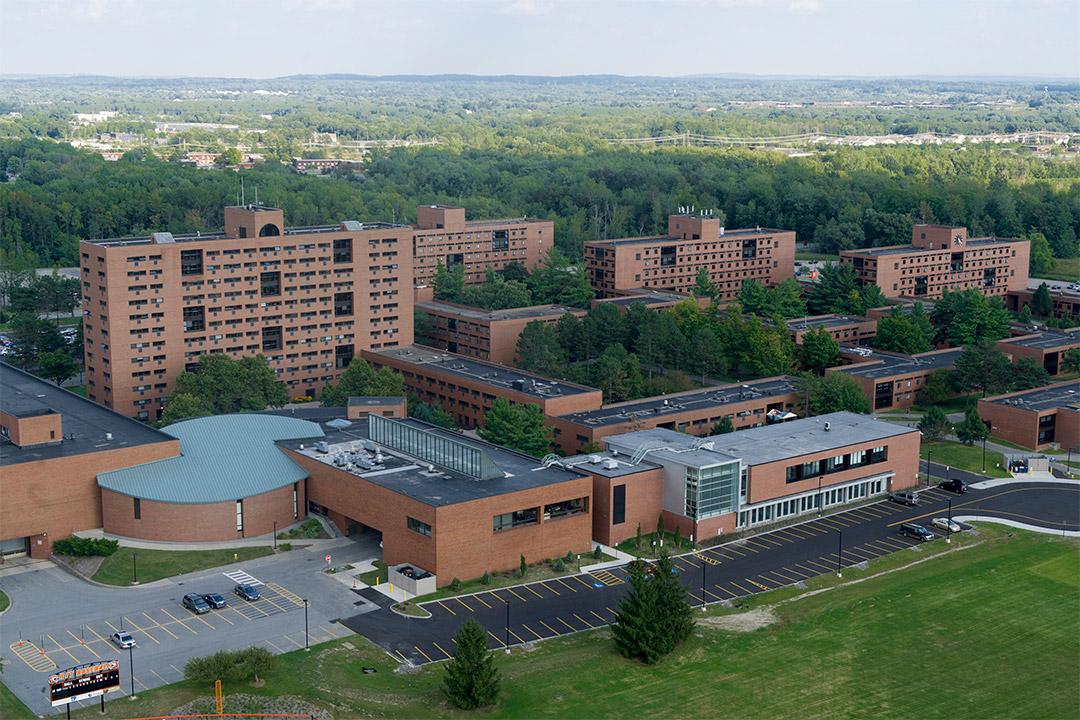RIT to monitor wastewater for signs of surges in coronavirus cases before symptoms set in
University will test wastewater in residence halls and on-campus apartments twice weekly
Elizabeth Lamark
RIT will test wastewater on campus for traces of COVID-10 twice weekly beginning Aug. 5 to get early indications if coronavirus spreading in campus housing.
RIT will use an unusual technique to search for surges in coronavirus cases before those infected even begin displaying symptoms. The university will test wastewater on campus for traces of COVID-19 twice weekly beginning Aug. 5 to get early indications if coronavirus is spreading in campus housing and other areas of campus.
Members of RIT’s fall planning task forces say the wastewater surveillance will be a critical and proactive complement to more standard COVID-19 tests like the PCR tests involving nasal swabs. If health officials see spikes in coronavirus levels, they could take actions such as having the residents of the affected areas get further testing.
“We’re looking for viral RNA, pieces of the virus that get shed off of people when they go to the bathroom,” said Jennifer Schneider, the Eugene H. Fram Chair of Applied Critical Thinking and a professor in the Department of Civil Engineering Technology, Environmental Management and Safety. “By testing wastewater, we can get an idea of what the relative viral prevalence could be in the population using areas of campus. If we see it increase in a particular area, we can look more closely and run some strategic testing.”
The wastewater testing initiative is part of RIT’s overall testing strategy. That strategy also includes requiring students, faculty, and staff to get tested before returning to campus in the fall; testing community members for cause based on their responses to the daily health screen or contact tracing; and periodic surveillance testing of community members chosen at random.
“Wastewater testing is important because it will give us lead time to change some of our mitigation efforts if we see a rise in infection in a particular area of campus,” said Wendy Gelbard, associate vice president of wellness. “We know that infected individuals shed the virus a couple of days prior to manifesting symptoms or shed the virus even without manifesting symptoms at all. We also know that our student population can be a large part of that group that has no symptoms and wastewater may be our best way of detecting changes on campus.”
RIT will test wastewater from the residence halls and on-campus apartment complexes. Facilities Management Services identified 15 manholes on campus where sanitary sewer discharge comes together from those sources and is installing sampling pumps inside them. The sampling equipment will be out of sight from the public and a Syracuse-based firm called Quadrant Biosciences will collect samples twice weekly for analysis and report the results back to RIT health officials.






